Abstract
Evaluation is an essential management tool for the improvement of public health programmes or projects. As malaria morbidity and mortality continue to increase in most countries in Africa, international agencies and malaria control programme managers have identified the strengthening of programme evaluation as an important strategy for improving the efficiency and effectiveness of malaria control programmes. Managers can develop an evaluation strategy only after they have defined programme objectives and planned specific programme activities. Indicators should be directly related to programme objectives and should be selected on the basis of the following criteria: their validity; reliability; ability to detect change within a reasonable time period and as a result of successful programme implementation; ability to be interpreted; and usefulness in guiding programme change. Only those indicators that can be measured with available programme resources should be selected. Managers will also need to identify the sources of indicator data and to determine how often each indicator will be measured. Programme managers should develop criteria or indicators for the following: programme policies and plans; the process of programme implementation; the outcomes of malaria control interventions in disease management and prevention; and programme impact in terms of reductions in malaria-related mortality and morbidity. Key issues related to the management of evaluation activities within a national programme include the need to begin with available resources and build incrementally; to explore options for administering evaluation activities; to select, train and supervise staff who carry out evaluation activities; to develop quality control strategies; and to ensure that data are managed and communicated in ways that support effective programme decision-making. For evaluation to lead to improvements in malaria control programmes it must be clearly defined as a part of the programme management process. Programme managers should lead this developmental process, ensuring that evaluation methods produce the information they need to monitor and improve their programmes at reasonable cost.
Full text
PDF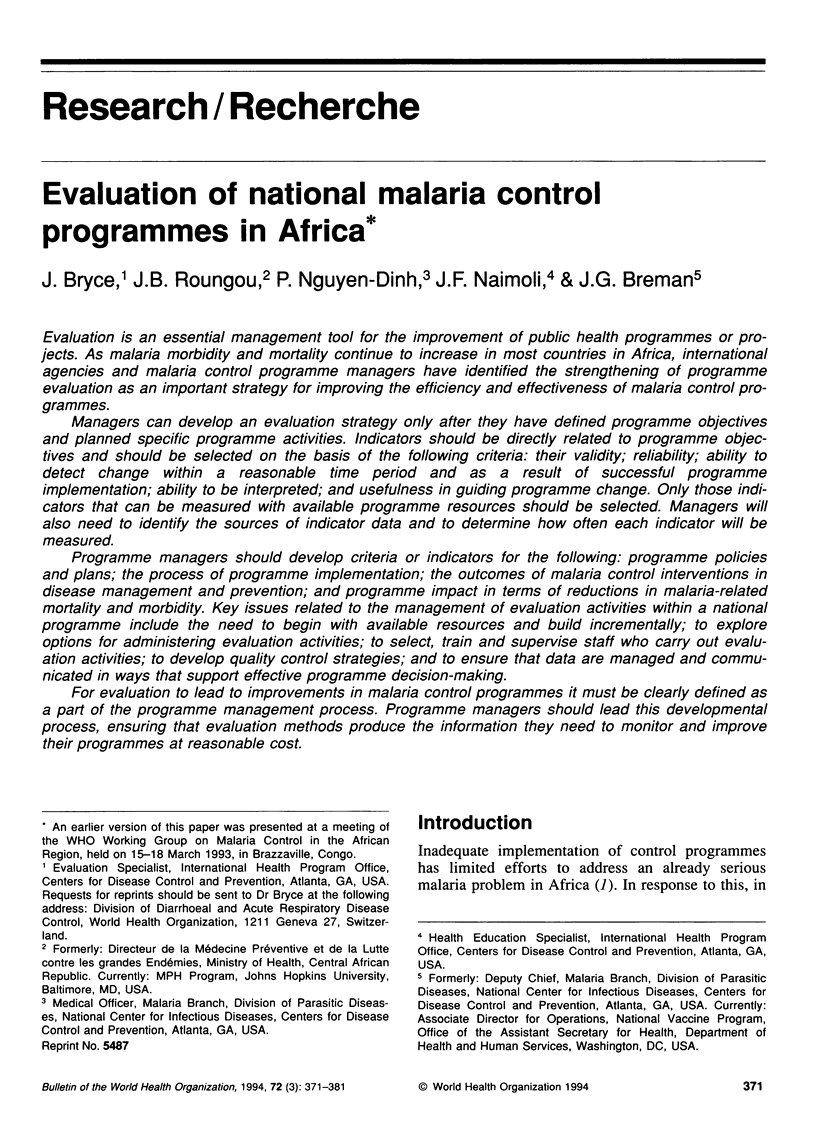
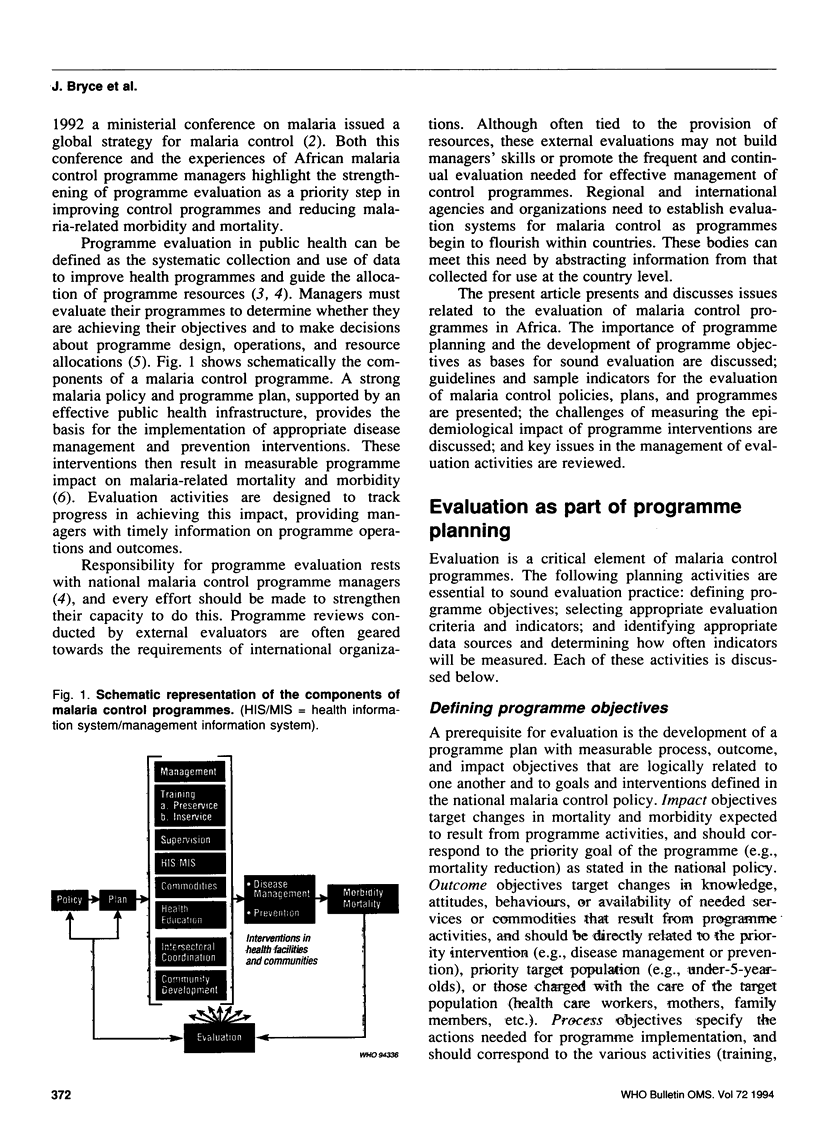
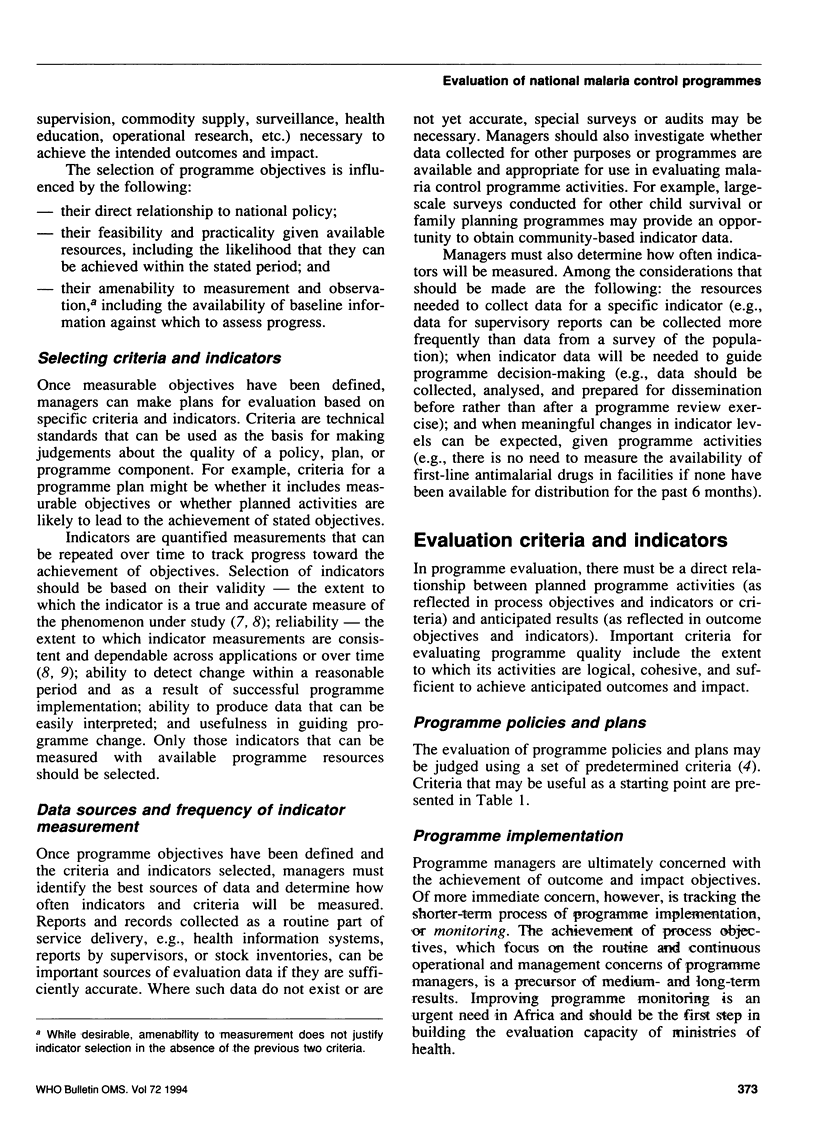
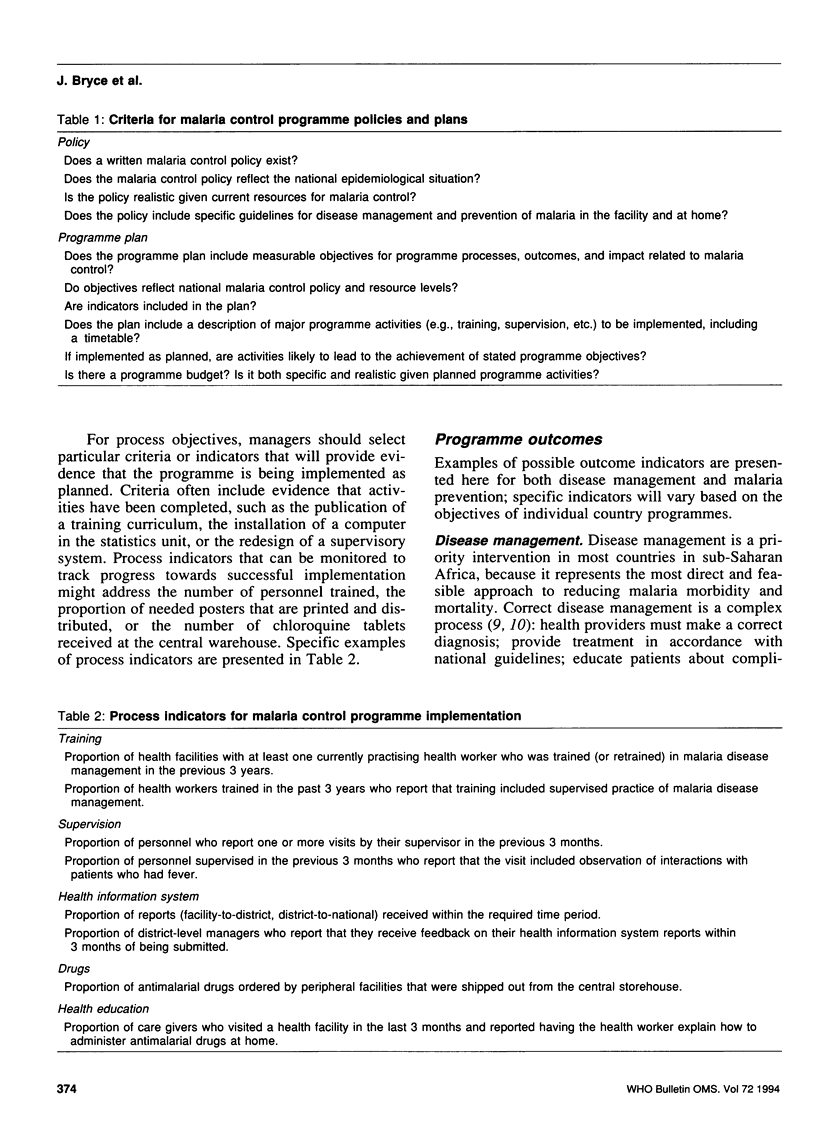
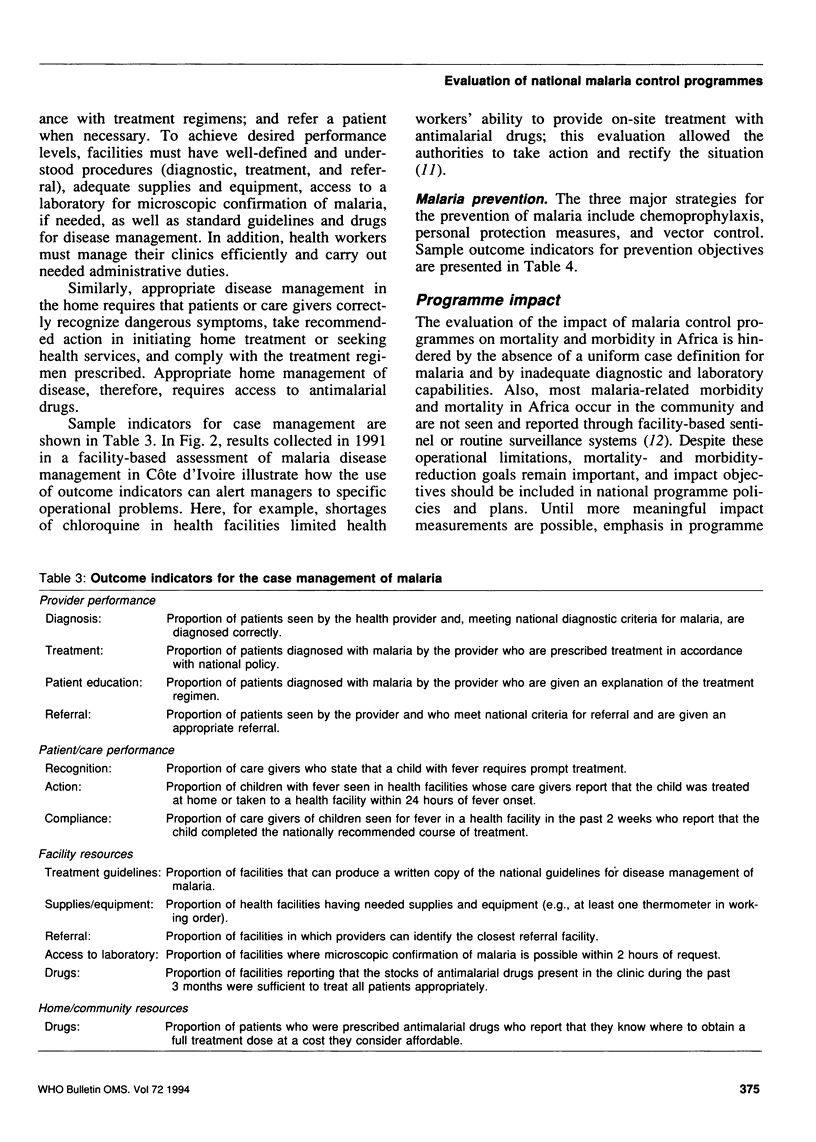
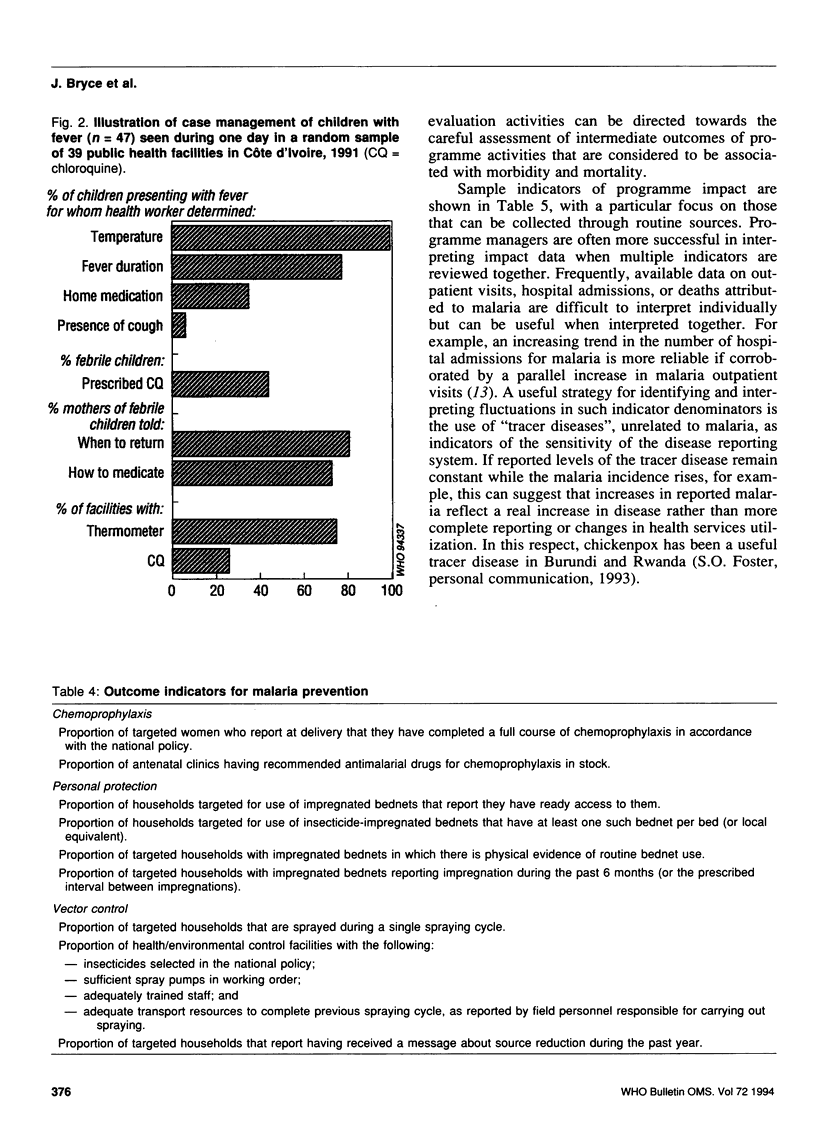
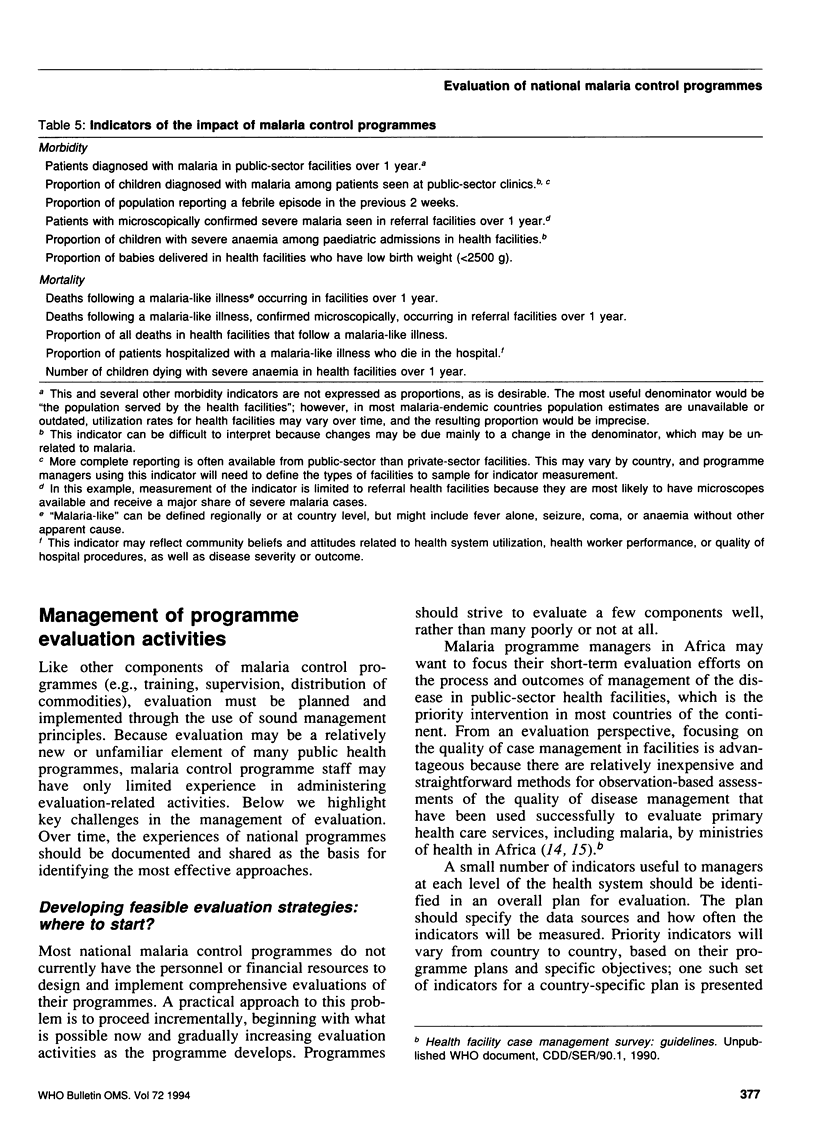
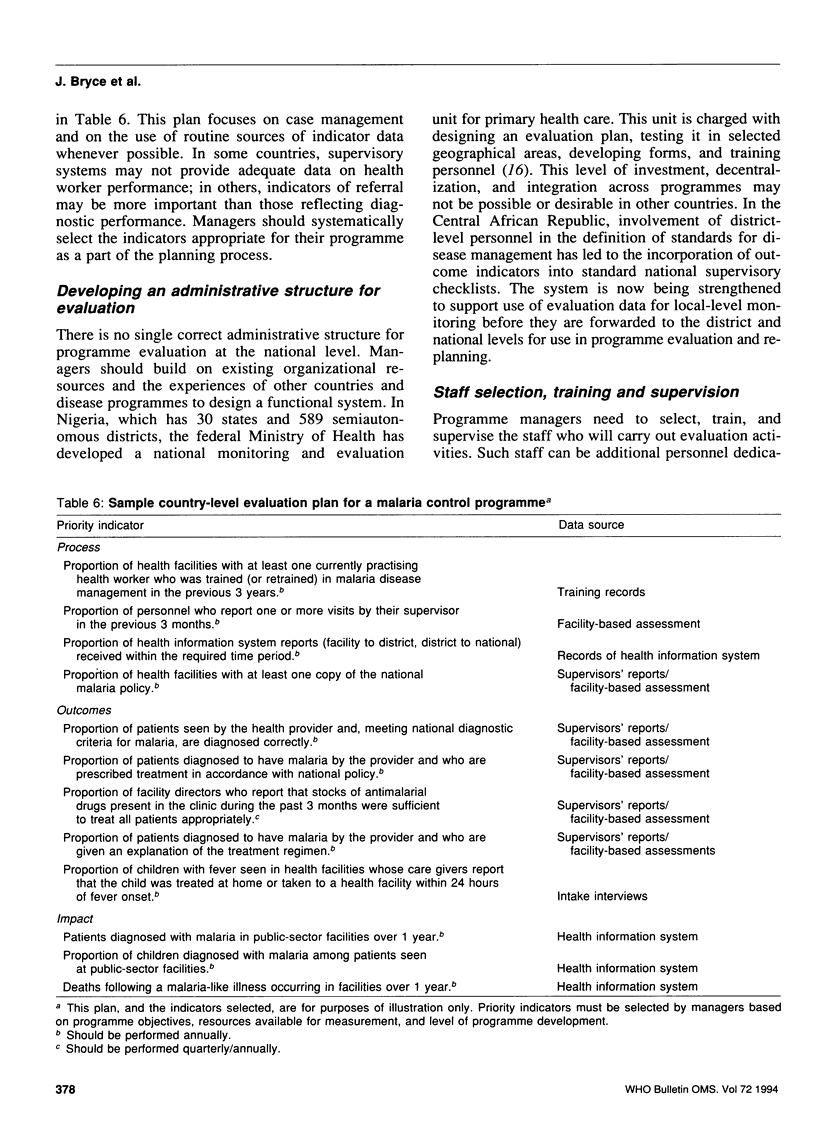
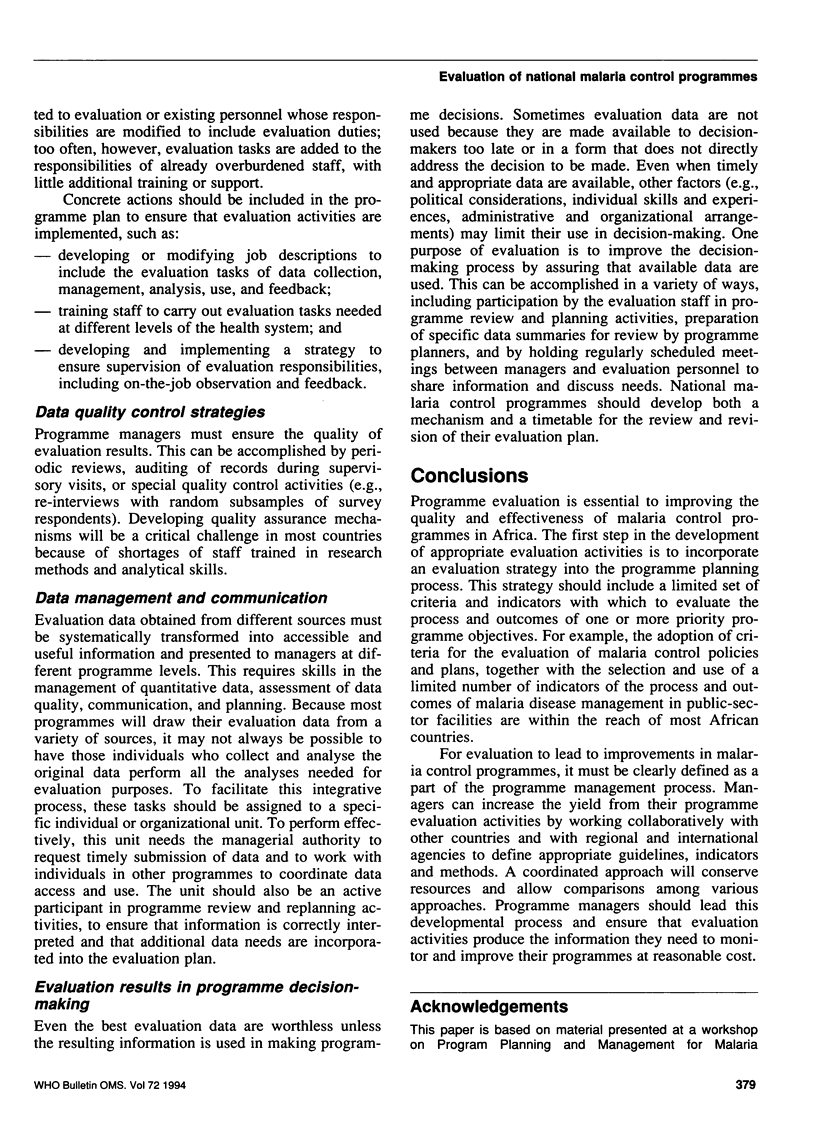
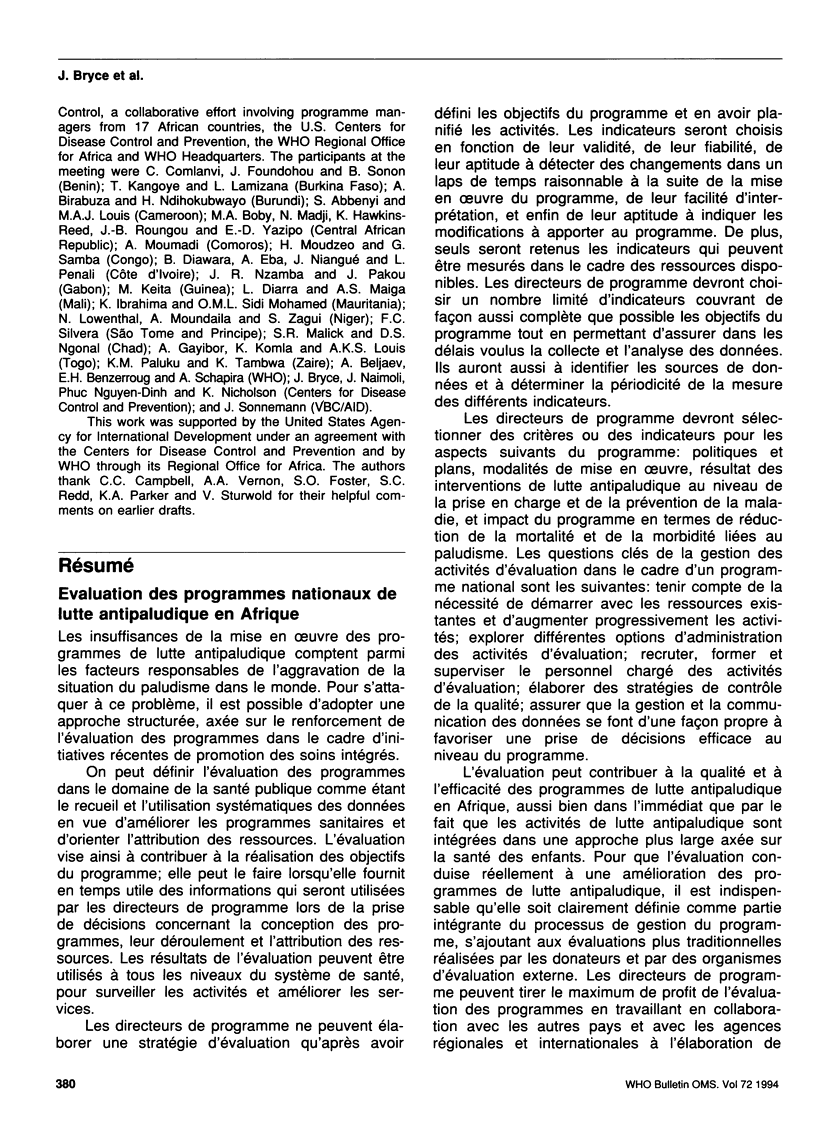
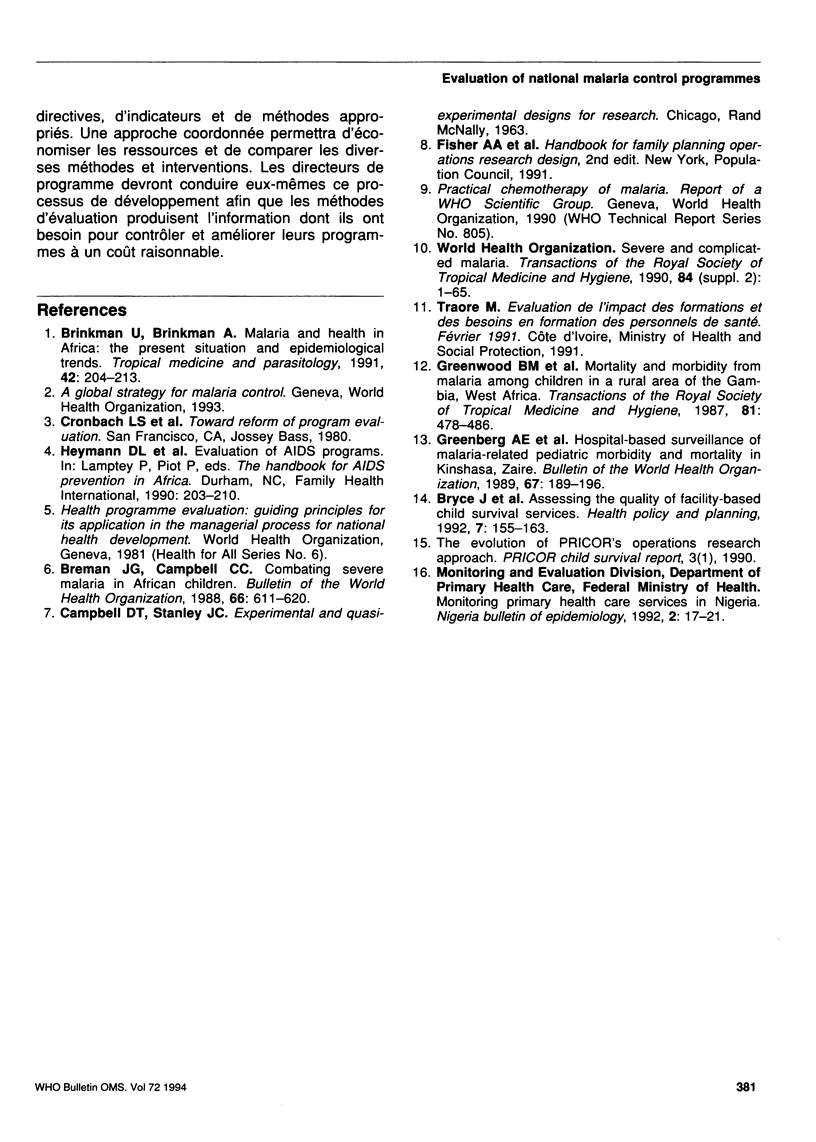
Selected References
These references are in PubMed. This may not be the complete list of references from this article.
- Breman J. G., Campbell C. C. Combating severe malaria in African children. Bull World Health Organ. 1988;66(5):611–620. [PMC free article] [PubMed] [Google Scholar]
- Greenberg A. E., Ntumbanzondo M., Ntula N., Mawa L., Howell J., Davachi F. Hospital-based surveillance of malaria-related paediatric morbidity and mortality in Kinshasa, Zaire. Bull World Health Organ. 1989;67(2):189–196. [PMC free article] [PubMed] [Google Scholar]


